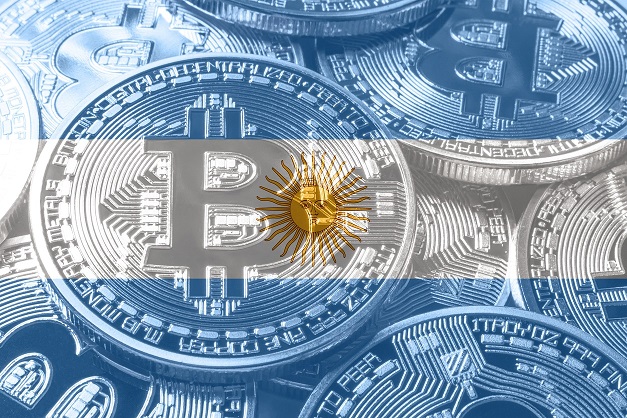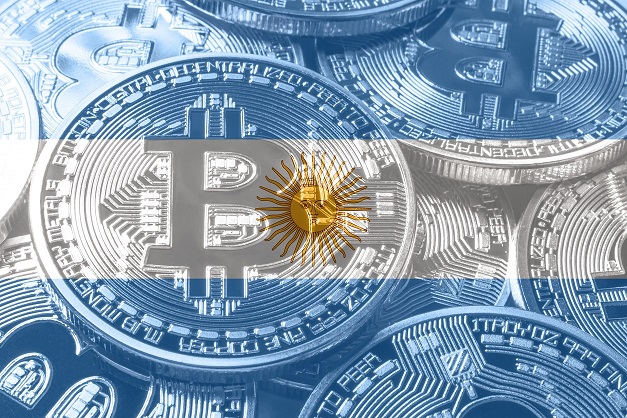
Key Takeaways
- Inflation in Argentina is now near 100%, as savings in the peso are getting crushed
- Bitcoin, despite collapsing in the last year, is up in peso terms
- Weak currencies are often cited as benefits of Bitcoin, but in the case of Argentina, it would be worse, writes our Analyst Dan Ashmore
- Stablecoins present a better case, he argues, with US dollar up 87% against the peso since 2022
It’s a well-trodden argument, the one that states Bitcoin is purpose-built for the developing world. A more accessible financial system; a medium through which citizens can circumvent failing currencies.
In theory, it makes sense, and it’s something that I have written about extensively in the past. As risky and experimental as Bitcoin is, one could state a case that this enigmatic digital currency could – one day in the future – offer such financially oppressed peoples a way to protect their wealth.
But that day is not now. In fact, Bitcoin is entirely useless for such a purpose. That is despite the below chart showing that Bitcoin has appreciated in value over the last year against the Argentinian peso.
This has seen some Bitcoin advocates – and to be clear, I am a Bitcoin investor – declare that this is a poignant display of Bitcoin’s power. But it is important to be wary of what we are benchmarking to here. The Argentinian peso is quite literally one of the world’s worst-performing currencies in recent years – plotting its value against the US dollar shows how far it has fallen.
Bitcoin is no better than the peso
This analysis of the Argentinan peso really has nothing to do with Bitcoin. It simply highlights how torrid a store of wealth the peso has been, and how devastating its devaluation has been for its citizens.
But imagine holding one’s wealth in Bitcoin? What if you were looking to send your child to college in January of this year. Tuition is, let’s say $10,000. Imagine if you had stored $10,000 in Bitcoin back in November 2021 (when it was trading at $68,000). If tuition was due on January 1st of this year, your $10,000 would have fallen to $2,400. Need I say more?
Instead of benchmarking Bitcoin to one of the worst stores-of-value around, it should be compared to, well, an actual store of value. If Bitcoin is to replace money, it’s not really a win if it’s better than one of the worst forms of money around. It’s the ultimate straw man argument.
We should be charting Bitcoin compared to an established currency. In the below graph, I have plotted the weekly percentage moves of the euro to Bitcoin (comparing both to US dollar). It’s like comparing night and day.
Stablecoins suit Argentina better than Bitcoin
The Argentinan example does present as a more intriguing example when considering a different type of crypto – stablecoins. Theoretically, this opens up dollar access to those who would otherwise be shut out (via capital controls, banking barriers or other). And at the same time, the asset being purchased – the dollar – is a store of wealth worthy of firing college savings into.
Could the day come when this may change? Sure, who knows what happens in fifty years. But I’m talking right here, right now. And Argentininans going from the peso to Bitcoin would be like jumping out of one fire and into the next. For the everyday Argentine citizen fearing for their own wealth, is there any argument at all that advocates for Bitcoin over stablecoins?
So, arguing for stablecoins is one thing. And yeah, I can see it – citizens of high-inflation regimes are getting crushed as their currencies devalue into oblivion.
But Bitcoin? How can you look at these currencies and then decide Bitcoin is the solution? I’m as intrigued by Bitcoin as anyone, and I do believe that the store-of-value narrative is the one that the magical orange coin should pursue in the long-term. And hey, maybe we re-look at this peso vs USD vs Bitcoin debate in 25 years time and there is a different conclusion.
But right now, in the year 2023? Bitcoin is not Argentina’s answer. Far from it.
Share this article
Categories
Tags
https://coinjournal.net/news/bitcoin-is-up-in-argentinian-pesos-over-the-last-year-but-natives-should-still-avoid-it/





 BTC-USD
BTC-USD  ETH-USD
ETH-USD  LTC-USD
LTC-USD  XRP-USD
XRP-USD